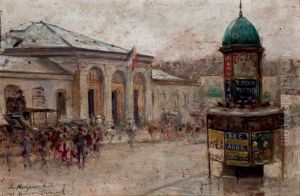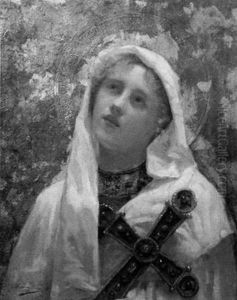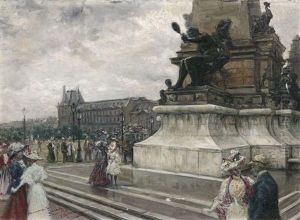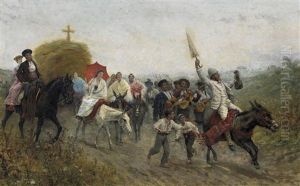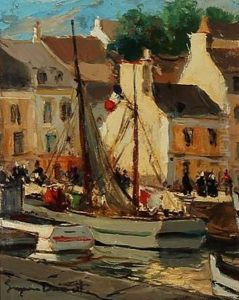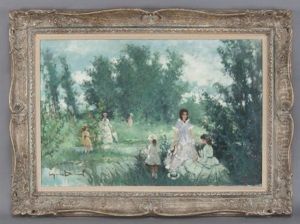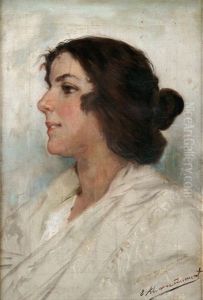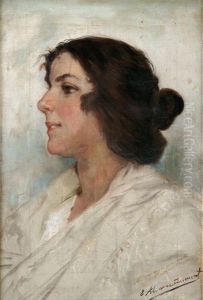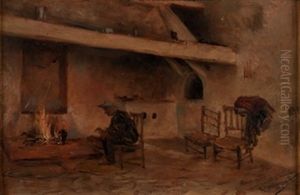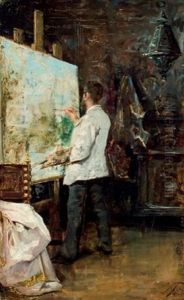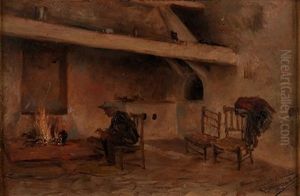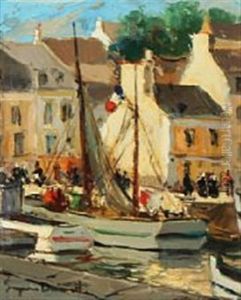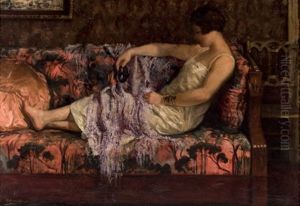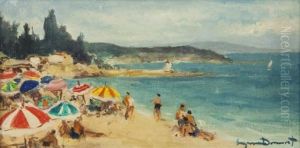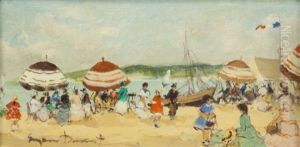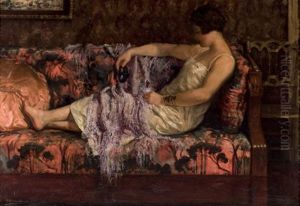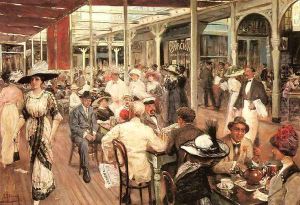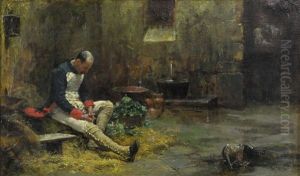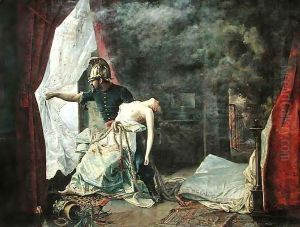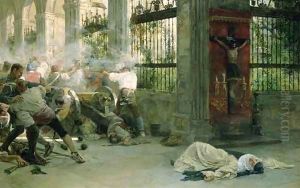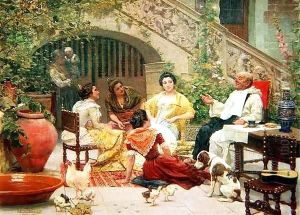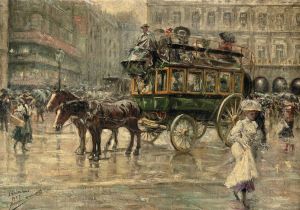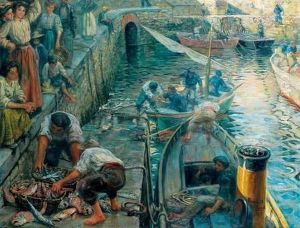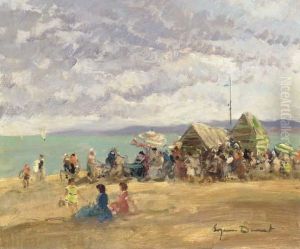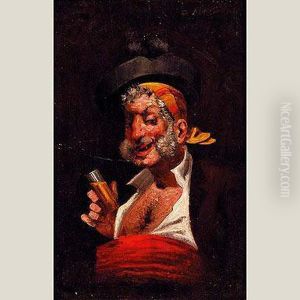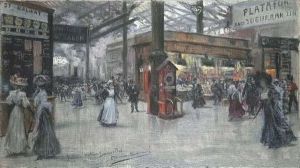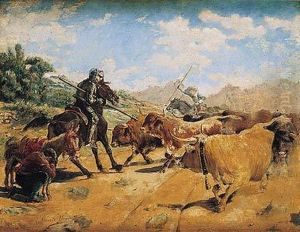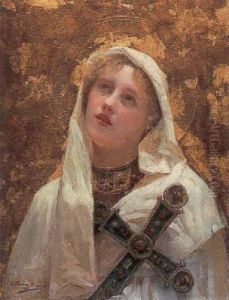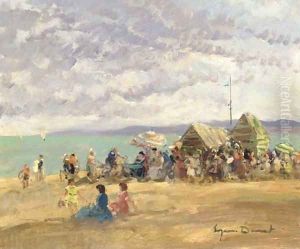Eugenio Alvarez Dumont Paintings
Eugenio Alvarez Dumont was a distinguished Spanish painter born in Madrid in 1864. He hailed from a family with strong artistic roots; both his father, Eduardo Alvarez Dumont, and his brother, Cesar Alvarez Dumont, were also renowned painters, which undoubtedly influenced his career path. Eugenio's work is primarily remembered for its detailed depiction of historical events and military scenes, contributing significantly to the genre of history painting in Spain during the late 19th and early 20th centuries.
Dumont's education in the arts was comprehensive and took place at the prestigious Royal Academy of Fine Arts of San Fernando in Madrid, where he was under the tutelage of some of the most prominent Spanish artists of the time. His dedication and skill quickly became evident, earning him recognition and awards at a young age, including a coveted scholarship that allowed him to further his studies in Rome. This period was crucial in shaping his artistic style, as he was exposed to a wide range of artistic influences and historical themes that would later become central to his work.
Throughout his career, Eugenio Alvarez Dumont participated in numerous national and international exhibitions, showcasing his talent beyond the borders of Spain. His paintings were celebrated for their meticulous attention to detail, vivid portrayal of historical figures, and the ability to convey the dramatic intensity of battle scenes and significant historical moments. Among his most notable works are those that depict scenes from the Peninsular War and other significant events in Spanish history, which not only demonstrate his exceptional skill as a painter but also his deep interest in and commitment to preserving Spain's historical legacy through art.
Despite his success, Dumont's life was not without challenges. The changing tastes in art towards modernism and abstraction in the early 20th century meant that his classical style began to fall out of favor, impacting his career to some extent. Nonetheless, he continued to work and contribute to the art world until his death in 1927.
Eugenio Alvarez Dumont's legacy is that of a master storyteller through his paintings, offering a window into Spain's past with each brushstroke. His works remain a valuable part of Spanish cultural heritage, preserved in museums and collections both in Spain and internationally. His dedication to his craft and his ability to capture the essence of historical moments with accuracy and emotional depth continue to earn him a respected place in the annals of art history.
